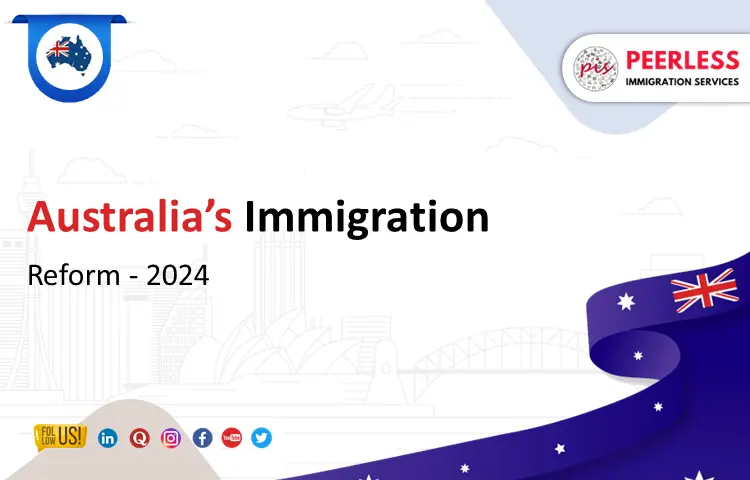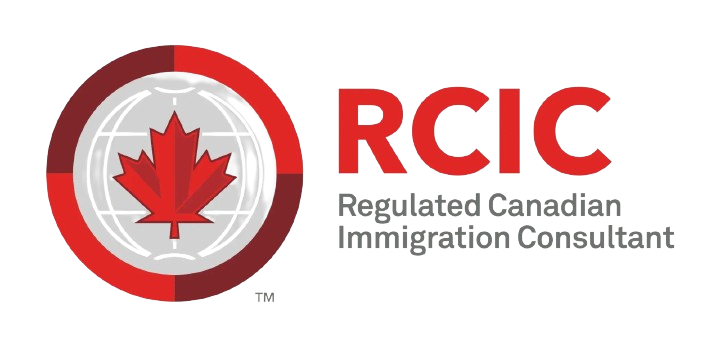
Australia Immigration Reforms 2024
Facilitating effective migration is integral to Australia’s national narrative, having historically played a pivotal role in addressing challenges and fostering prolonged periods of prosperity and security. As we stand on the brink of significant societal shifts, migration holds the key to unlocking opportunities for Australia in the forthcoming decades. However, the current migration system is deemed dysfunctional.
The 2023 Review of the Migration System, led by Dr. Martin Parkinson AC PSM, represents the first comprehensive examination in a generation. It highlights a fundamental issue: a lack of clarity regarding the overarching goals of migration, underscoring the systemic challenges faced today. Dr. Parkinson emphasizes that the system is so severely compromised that it necessitates a ten-year reconstruction. The current state of affairs is not beneficial for workers, businesses, or the broader Australian populace. Ultimately, the success of the migration system hinges on the support of the Australian people.
For workers, whether local or migrant, this strategy entails enhanced safeguards for wages and working conditions. For businesses, it means securing the skills required for growth and productivity, especially in critical sectors such as healthcare, the transition to net zero, and the digital economy. For all Australians, it promises a meticulously planned migration system aimed at fortifying local communities and elevating living standards.
This strategy charts a course for Australia to adeptly confront future challenges, with the overarching goal of constructing a more prosperous and secure nation for current citizens and laying a resilient foundation for generations to come.
Objectives to Realize the Vision
- Elevating Living Standards: Enhancing productivity, addressing skills shortages, and supporting exports to raise the overall living standards of Australians.
- Ensuring Workplace Fairness: Safeguarding the rights and conditions of all workers, preventing the exploitation of migrant labor, and fostering fairness in the workplace.
- Building Stronger Communities: Improving migration planning, offering opportunities for migrants to invest in their lives through permanent residence and citizenship, and contributing to the strength of Australian communities.
- Strengthening International Relationships: Cultivating stronger economic and social ties with regional and international partners to fortify Australia’s global standing.
- Optimizing the System: Establishing a migration system that is fast, efficient, and fair for both migrants and employers.
Roadmap to Vision Realization
In pursuit of the new vision and objectives for Australia’s migration system, an ambitious roadmap for reform is essential.
- Extensive Consultation: The development of the roadmap involves extensive consultation with stakeholders, including businesses, unions, international education, civil society, and the broader Australian public.
- Informed by Migration Review: The roadmap is informed by key findings from the Migration Review and the analysis of 483 public submissions.
- Government’s Commitments: The roadmap encompasses existing commitments, introduces over 25 new commitments, and identifies areas for future reform.
Key Actions in the Migration Strategy Roadmap
- Closing COVID Concessions: Implementing measures to phase out concessions introduced during the COVID-19 pandemic.
- Strengthening Integrity in International Education: Elevating standards and integrity in international education to ensure a high-quality learning experience.
- Ending Long-Term Temporary Stays: Addressing settings that encourage prolonged temporary stays, promoting a more sustainable migration approach.
- Combatting Visa System Exploitation: Implementing measures to curb exploitation within the visa system.
- Targeting Skilled Migration to Genuine Shortages: Directing skilled migration efforts toward addressing genuine skills shortages, ensuring a strategic and targeted approach.
Enhanced Skilled Migration Strategy
Objective 1: Targeted Skilled Migration for Skills Fulfilment and Mobility
To address Australia’s skills requirements and facilitate worker mobility, a revamped Skills in Demand visa program is introduced. This includes three distinct pathways and revised visa settings designed to encourage flexibility in the labor market.
Key Commitments:
Develop a new Skills in Demand visa, with full mobility and clear pathways to permanent residence. With this, the Government will introduce a new 4-year temporary skilled worker visa—the Skills in Demand visa, which gives workers more opportunity to move employers and will provide clear pathways to permanent residence for those who want to pursue them.
Develop a Specialist Skills Pathway to drive innovation and job creation: In this the government will create three targeted pathways within the Skills in Demand visa, adopting the ‘risk-based approach to regulation’ recommended in the Migration Review.
- Specialist Skills Pathway
- Core Skills Pathway, and
- Essential Skills Pathway
Legislate indexation of income thresholds to maintain system integrity
Take a coordinated, evidence-based, tripartite approach to identifying skills needs
Streamline Labour Market Testing to reduce complexity: Businesses and unions agree that the current rules for checking the job market are not working well. The government will make changes right away. They will make it easier for companies to hire by removing the need to advertise jobs through Workforce Australia and extending the time jobs are valid from 4 to 6 months.As Jobs and Skills Australia gets better at its job, the government might stop companies from doing their market checks. Instead, they’ll look at ways to have a strong and independent check to make sure there’s a real need for workers in the job market.
Establish a best practice service level agreement for processing times and a modernized accreditation pathway to better compete for talent.
Objective 2: Transformation of Permanent Skilled Migration for Sustainable Growth Commitment:
The Government sets an annual planning level on the number of permanent skilled migrants, with allocations distributed across 4 main streams (and various sub-streams).
These streams are:
- Points-tested skilled migration: includes Skilled Independent, Skilled Nominated, and most Regional visas, which are selection-based on a points test
- Employer-nominated: requires applicants to be nominated by a sponsoring employer
- Global Talent: intended to target exceptionally skilled migrants in priority sectors
- Business Innovation and Investment: intended to target migrants who invest or drive innovation.
In 2023–24, Australia Govt. plan to grant 190k permanent visas
- Independent streams: 93,075 applications
- Employer-nominated: 36,825 applications
- Other talent and innovation: 7,200 applications
- Family Sponsorship: 52,500 applications, and
- Special Eligible: 400 applications
Objective 3: Strengthening the integrity and quality of international education
Initiatives: A comprehensive set of integrity measures is introduced to enhance standards in international education, ensuring that international students and education providers maintain high quality and that graduates address skills shortages without being caught in a state of perpetual temporariness.
Key Commitments:
Increase English language requirements to improve the quality of students’ educational experience in Australia and reduce potential workplace exploitation: In early 2024, the Government will increase English language requirements for Student and Temporary Graduate visas:
- the test score required for a Temporary Graduate visa will increase from an International English Language Testing System (IELTS) score (or equivalent) of 6.0 to 6.5
- the test score required for a Student visa will increase from IELTS (or equivalent) 5.5 to 6.0
- the test score required for students undertaking an English Language Intensive Course for Overseas Students (ELICOS) before their main course of study will increase from IELTS (or equivalent) 4.5 to 5.0
- the test score required for students undertaking university foundation or pathway programs that deliver reputable English language training will be IELTS (or equivalent) 5.5.
Apply greater and more targeted scrutiny to student visa applications from high-risk providers: The Government will introduce a new Genuine Student test for all international students. The Genuine Student test will clearly incentivize applications from genuine students and discourage non-genuine students, whose primary intention is to work rather than study. Two new Ministerial Directions will be introduced to support the integrity of process:
- The first Ministerial Direction will guide decision-makers by considering factors like the applicant’s academic or career progress and the relevance of their intended study to future career prospects, and
- The second Ministerial Direction will prioritize processing visa applications based on provider risk levels, effective by the end of 2023. This prioritization will affect processing times for higher-risk providers as visa decision-makers assess both provider integrity and individual student applicants.
Bolster the student visa integrity unit in the Department of Home Affairs to reduce misuse of Australia’s student visa system: To complement the introduction of the new Genuine Student test, the Government will invest $19 million to significantly bolster the student visa integrity unit in Home Affairs
Strengthen requirements for international education providers: The Government will pursue measures to further strengthen integrity, quality, entry requirements and student support across the international education sector to target non-genuine providers.
Restrict onshore visa hopping that undermines system integrity and drives ‘permanent temporariness: The Government will restrict Temporary Graduate visa holders from transferring back to student visas while onshore.
Strengthen and simplify Temporary Graduate visas: The Government is also strengthening the pathway from graduate visas to temporary skilled visas to give employers more certainty about a graduate’s ongoing work rights and pathways to permanent residence.
Main Points
The duration of an initial TGV will be shorter. The extension of post-study work rights will no longer be available. Only applicants who studied in a regional area will be eligible for an extension.
The maximum eligible age for a TGV will be reduced to 35, repositioning the visa as a product for early career professionals who can contribute to the Australian economy over a longer period.
TGV processing times for the ‘Post-Higher Education Work Stream’ will be backed by a 21-day service standard, which will give employers confidence in a student’s post-study options.
Objective 4: Tackling worker exploitation and the misuse of the visa system
Comprehensive Measures: The Government will develop a public register of employers who are approved to sponsor temporary migrant workers, to encourage public transparency, monitoring and oversight, and promote productivity-enhancing worker mobility
Objective 5: Planning migration to get the right skills in the right places
Key Commitments:
Plan migration over a longer-term horizon to better manage the migration intake, with greater state and territory collaboration: The Government will develop a principles-based, multi-year planning model for permanent migration, to improve collaboration with states and territories on migration settings
Work with states and territories to ensure population planning is based on the best available population data and forecasts: To strengthen population forecasting methodologies and evidence, including for overseas migration, so that all governments can better plan for population change
Establish a formal role for Jobs and Skills Australia in defining Australia’s skills needs using evidence, including advice from tripartite mechanisms: Skills assessments for migration ensure prospective migrants have the necessary technical skills, qualifications, and experience to meet the occupational standards needed for employment in Australia. The Government will:
- Develop and deliver an enhanced assurance framework to improve accountability, transparency, and integrity in the skills assessment sector,
- Implement new standards for skilled migration assessing authorities to optimize outcomes for Australian employers and migrants, and
- Develop an enhanced IT reporting system to ensure collection and analysis of current, accurate, reliable skills assessment data to inform evidence-backed assurance and policy.
Improve the approach to skills recognition and assessment to better unlock the potential of migrants: Skills assessments for migration ensure prospective migrants have the necessary technical skills, qualifications, and experience to meet the occupational standards needed for employment in Australia. The Government will improve skills assessment processes for migrants through enhanced assurance, standards and reporting
Launch an enhanced outreach program to improve access to the migration system
Bring an evidence-based, tripartite approach to evaluation and monitoring: The Government will establish fit-for-purpose evaluation arrangements to help ensure policies designed and implemented to deliver on this Migration Strategy have the intended outcomes and effects
Objective 6: Tailoring regional visas and the Working Holiday Maker program to support regional Australia and its workers
Commitment: Tailoring regional visas and the Working Holiday Maker program to support regional Australia and its workers: The Government will immediately alter Ministerial Direction 100 to make visa processing for migrants sponsored by employers in regional Australia its top visa processing priority. This will help further streamline visa processing for businesses located in regional Australia who are sponsoring skilled workers.
Objective 7: Strengthening Indo-Pacific People-to-People Ties
Enhanced Regional Connections: A novel strategy is implemented to deepen people-to-people links with the Indo-Pacific region. This involves creating a direct pathway to citizenship for New Zealanders and increasing mobility opportunities with Pacific Island and Southeast Asian countries.
Key Commitments:
Direct Pathway to Citizenship: A commitment to establishing a direct pathway to citizenship for New Zealanders to foster stronger ties.
Increased Mobility: Initiatives to enhance mobility with Pacific Island and Southeast Asian countries, promoting stronger regional connections.
Objective 8: Simplifying the migration system to improve the experience for migrants and employers
Comprehensive Simplification Agenda: A systematic approach is introduced to simplify the entire migration system, aiming to streamline visa settings, minimize visa classes, and enhance overall user-friendliness for both migrants and employers.
Key Commitments:
Abolish unnecessary and duplicative visas to simplify the visa system
Embed simplification as a key objective of all actions in the Migration Strategy.















